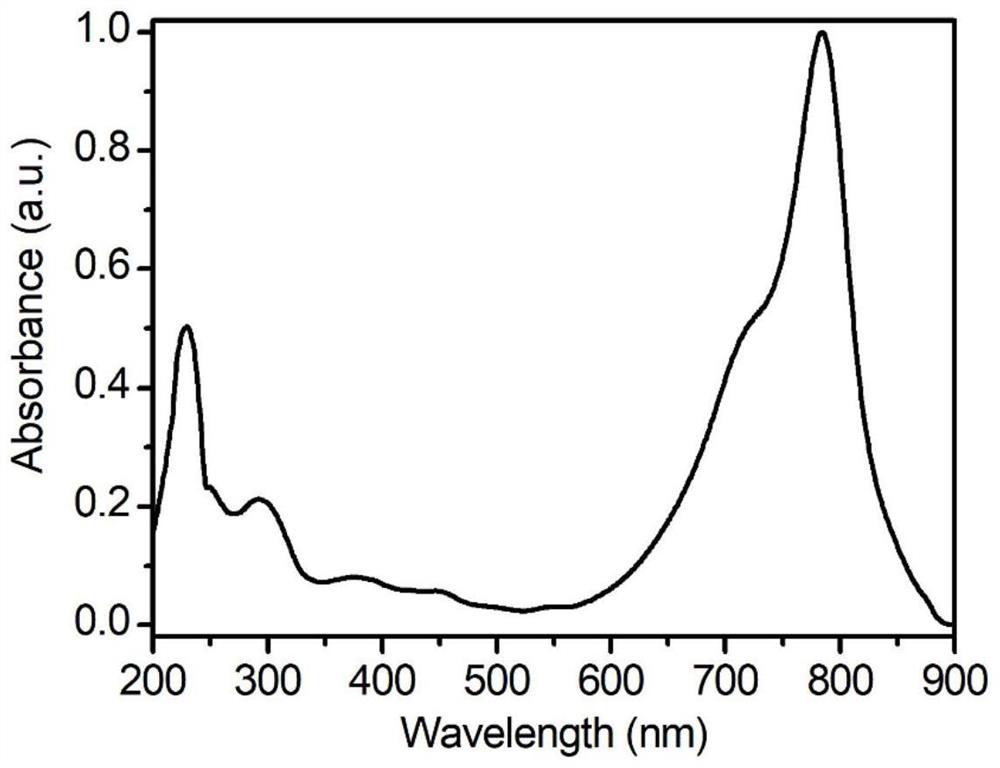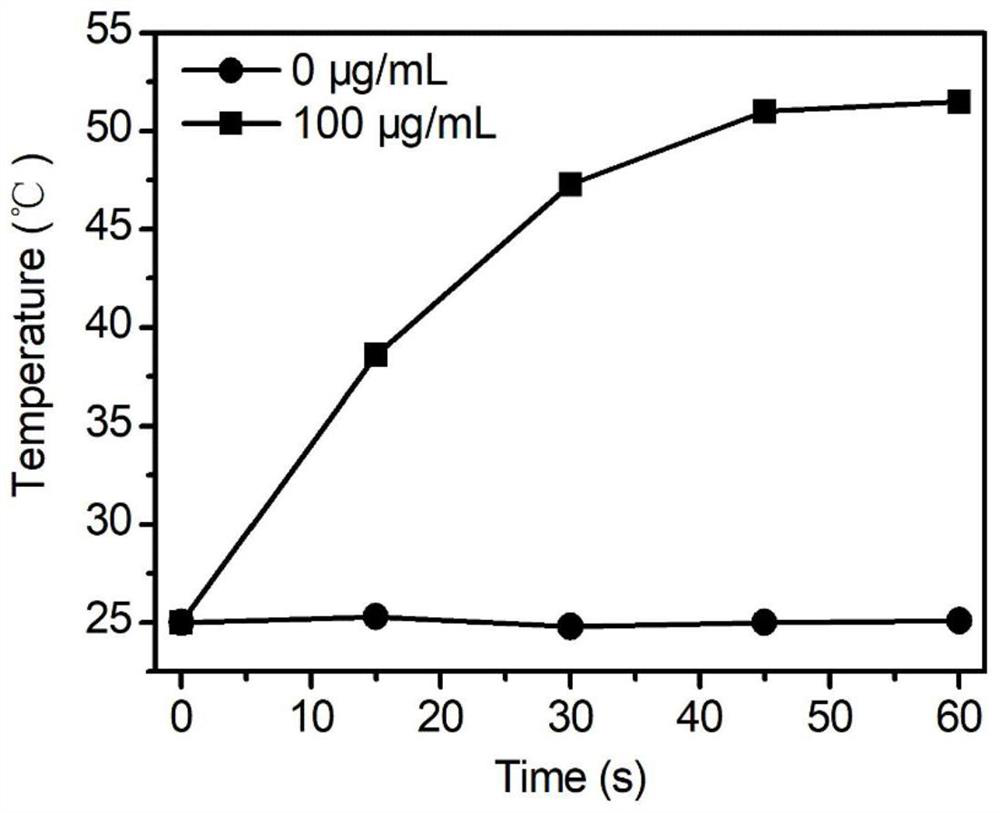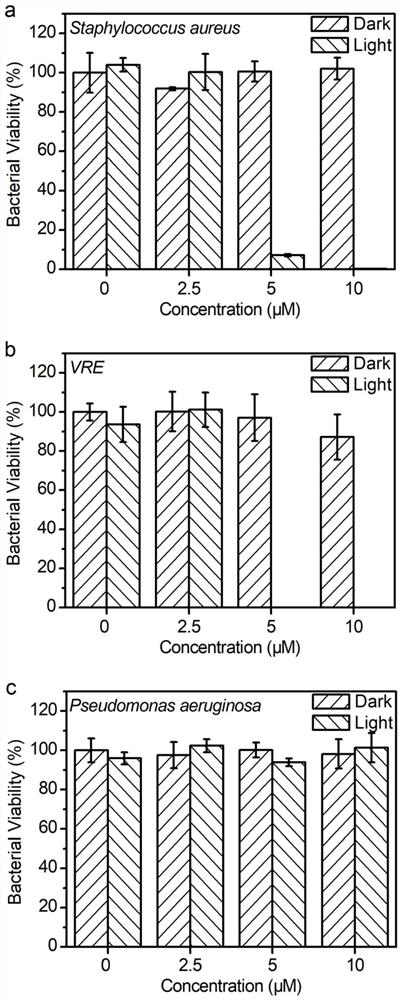A kind of near-infrared photothermal dye and its preparation method and application
A near-infrared light and dye technology, applied in organic dyes, chemical instruments and methods, methine/polymethine dyes, etc., can solve the problems of drug resistance of Gram-positive bacteria, achieve excellent light-to-heat conversion characteristics, Strong near-infrared absorption and simple preparation method
- Summary
- Abstract
- Description
- Claims
- Application Information
AI Technical Summary
Problems solved by technology
Method used
Image
Examples
Embodiment 1
[0032] Example 1: Synthesis of near-infrared photothermal dye C
[0033] The synthesis process is as follows:
[0034]
[0035] 1) Weigh compound A (IR780 iodide derivative, 60.1mg, 0.082mmol), compound B (18.7mg, 0.068mmol), EDC (32.7mg, 0.171mmol) and HOAT (23.2mg, 0.170mmol), dissolve in In DMF (3.5mL), react at 60°C for 24h under argon protection;
[0036] 2) After the reaction is over, add ethyl acetate and saturated sodium chloride solution to the reaction solution for extraction, collect the ethyl acetate layer, and successively wash with saturated sodium chloride solution and pure water, dry over anhydrous sodium sulfate, and concentrate under reduced pressure , and purified by column chromatography to obtain dark green near-infrared photothermal dye C (35.1 mg, yield 43.2%).
Embodiment 2
[0037] Embodiment 2: proton nuclear magnetic resonance spectrum test
[0038] Weighed 5.0 mg of C in Example 1 and dissolved it in 0.5 mL of deuterated chloroform, and carried out the H NMR spectrum test. The test result is 1 H NMR (400MHz, CDCl 3 ):δ8.80(s,2H),7.62(d,2H),7.40(t,4H),7.35(d,2H),7.30(d,2H),7.21(t,4H),7.08(m, 2H),6.13(s,2H),5.11(d,1H),4.03(m,4H),3.62(d,1H),3.27(t,2H),3.02(t,2H),2.62(m,4H ), 2.50(t,4H), 2.00(m,2H), 1.90(m,4H), 1.70(s,12H), 1.07(t,6H), demonstrating the successful synthesis of C.
Embodiment 3
[0039] Embodiment 3: mass spectrometry test
[0040] A small amount of C in Example 1 was weighed and dissolved in methanol for mass spectrometry. [M-I] + The experimental value of the mass-to-nucleus ratio (m / z) was 867.47, which was consistent with the theoretical value of 867.47, indicating the successful preparation of C.
PUM
 Login to View More
Login to View More Abstract
Description
Claims
Application Information
 Login to View More
Login to View More - R&D
- Intellectual Property
- Life Sciences
- Materials
- Tech Scout
- Unparalleled Data Quality
- Higher Quality Content
- 60% Fewer Hallucinations
Browse by: Latest US Patents, China's latest patents, Technical Efficacy Thesaurus, Application Domain, Technology Topic, Popular Technical Reports.
© 2025 PatSnap. All rights reserved.Legal|Privacy policy|Modern Slavery Act Transparency Statement|Sitemap|About US| Contact US: help@patsnap.com



